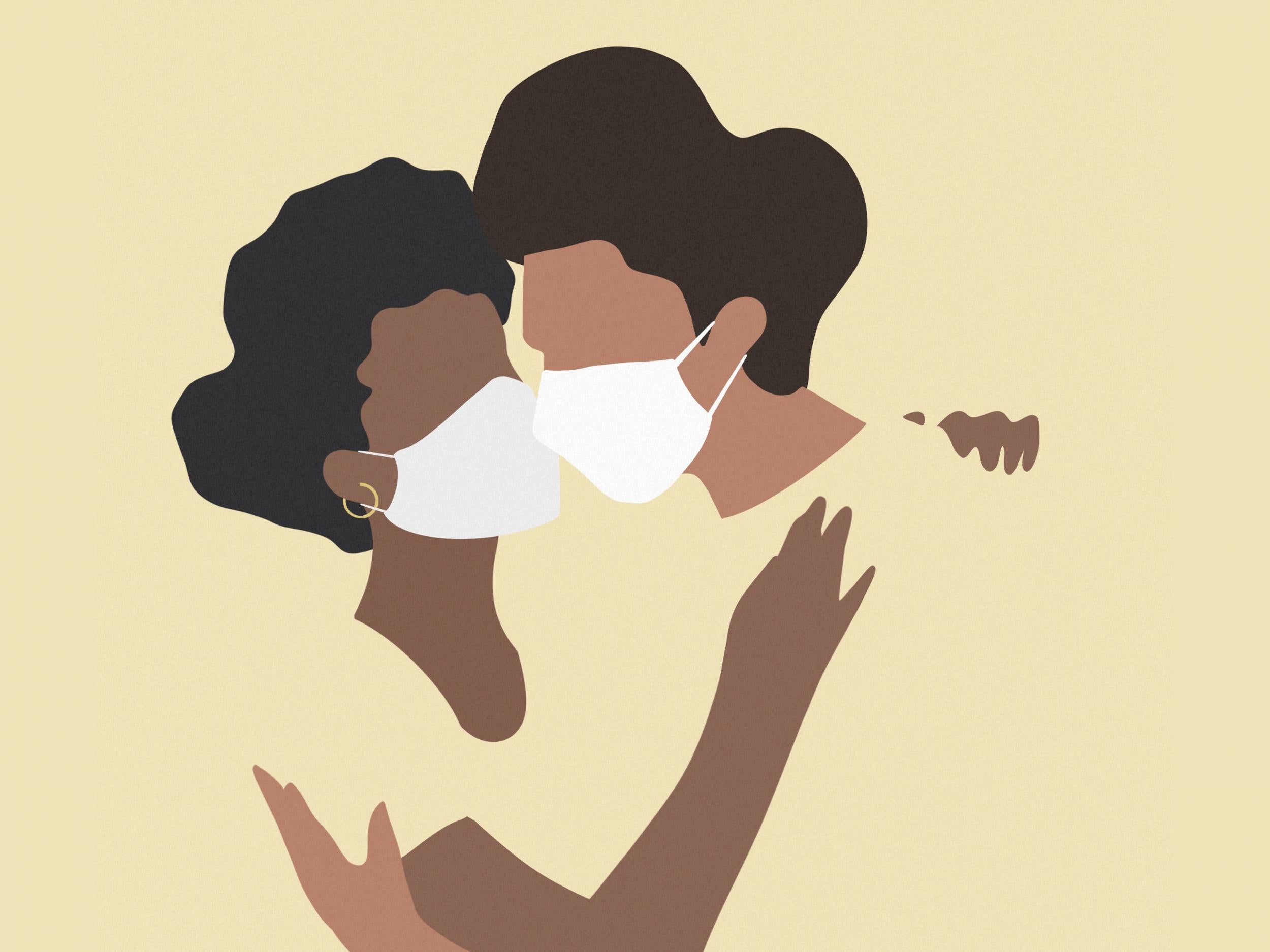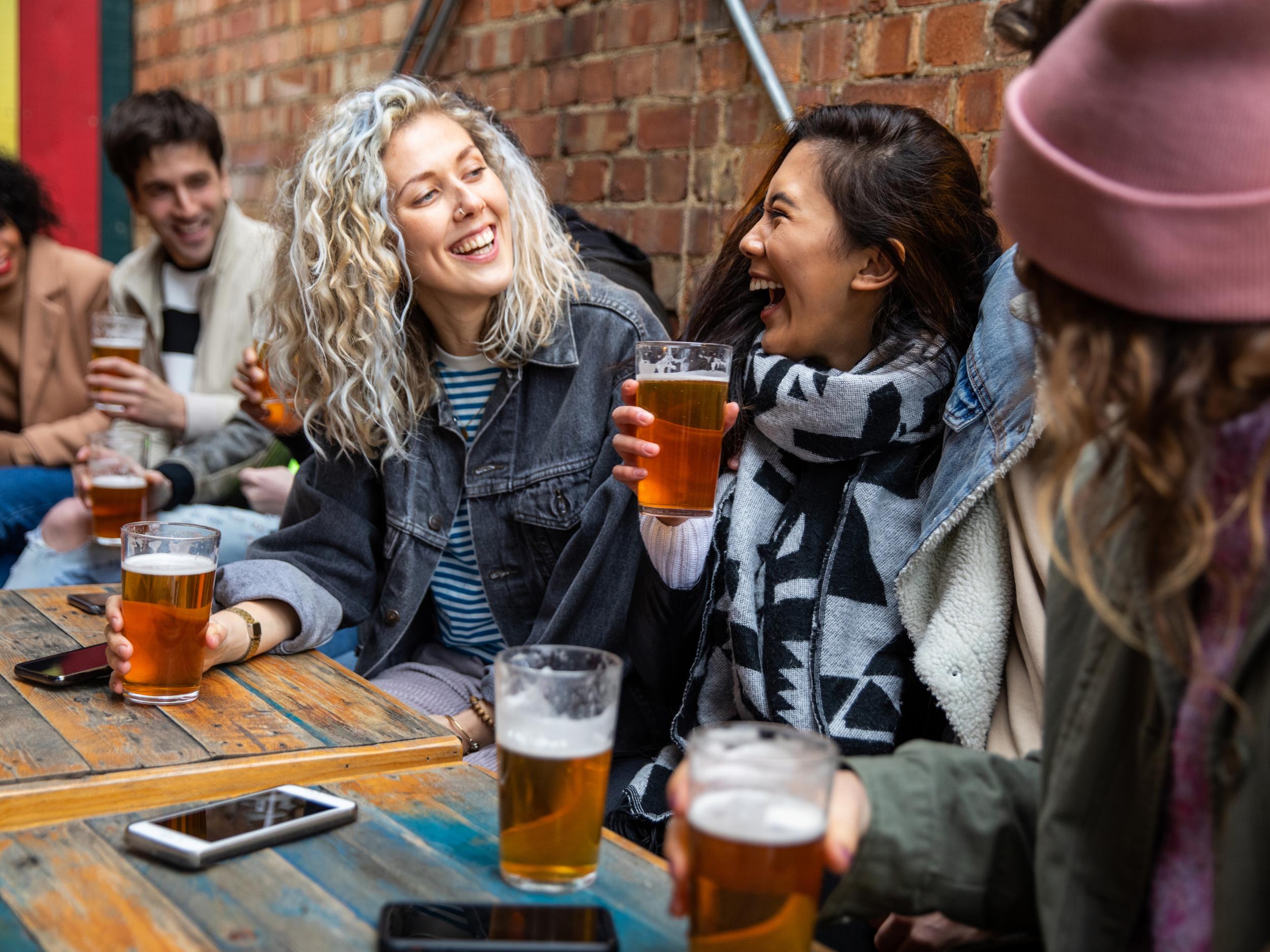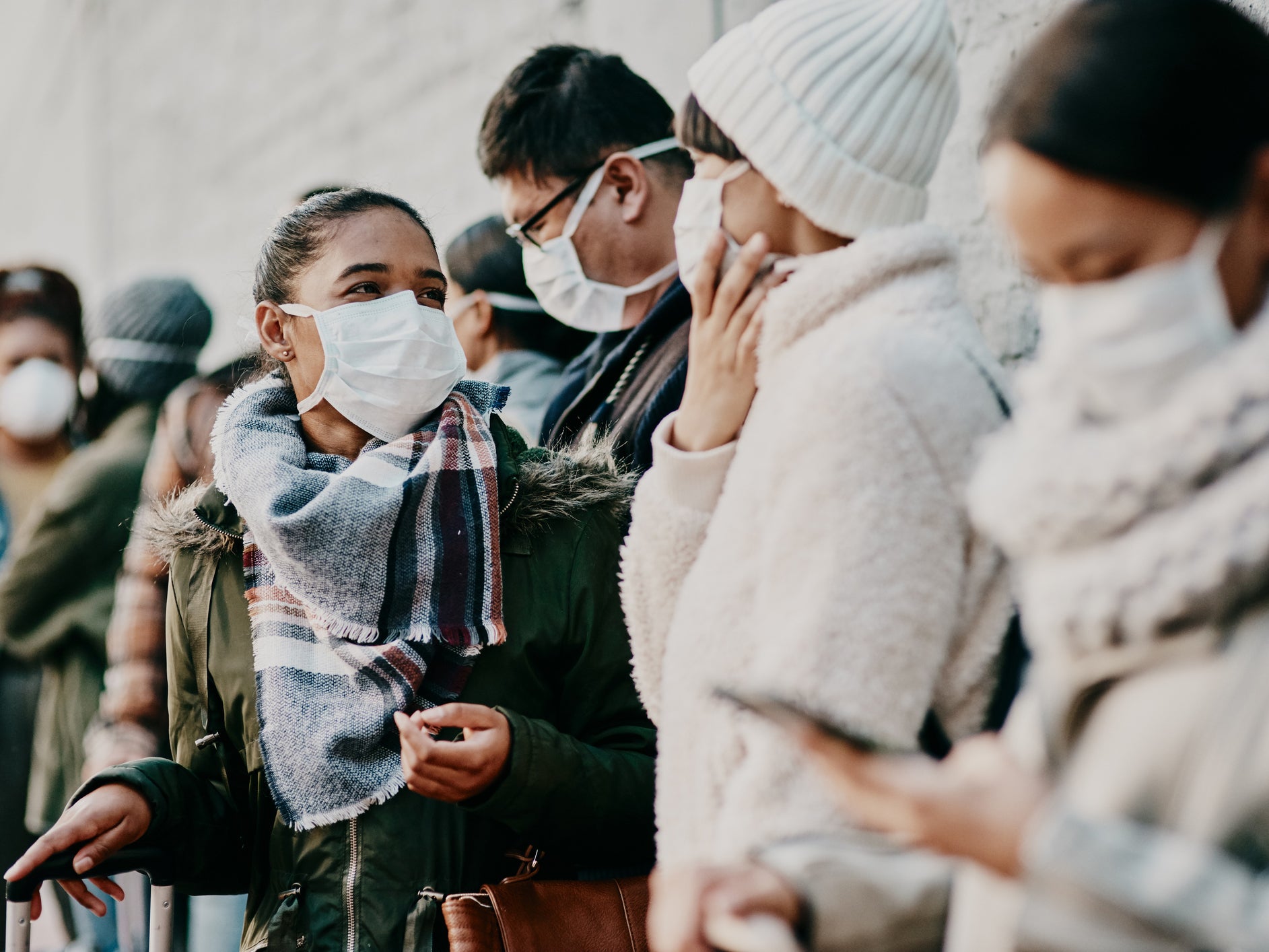‘To my friends and I, the pandemic no longer exists’: How young people feel about being blamed for the spread of coronavirus
Young people are bearing the brunt of the financial, physical and mental repercussions of the Covid-19 pandemic, so is it any wonder some of them are being lax about the rules? Zoë Beaty investigates


This article was first published on 4 September 2020.
In a pub in South-East London, a friend leans over to speak to me. It’s 10pm and he’s inching towards me, raising his voice over the swelling noise of the crowd. In one corner an Irish man in his 30s shouts and sways at the piano and is quickly told to shut the lid, which he does, reluctantly, shortly before falling off his chair. To his left and right, friends gather in groups of three or five or 10; the pool table has a crowd of its own and 50ps lined up on the cushion. Outside the vast smoking area, over two levels, is so packed you can barely find a place to stand, let alone sit. “This feels so… normal, doesn’t it?” my friend says.
This particular pub is not exactly an anomaly. Over the last few months, socialising has been privy to a slow but steady uptick. In some circles, in some places, worries have dissipated from the centre of conversation to whispers on the periphery – that maybe the fear of Covid-19 and its terminal impact is significantly lesser. The threat over the UK remains, yet dating is back. For some, parties are back. Why?
In August, some organisations and, especially in the US, politicians, pointed to increasing apathy from young people as the reason for a drive in the spread of Coronavirus. The World Health Organisation (WHO) warned that people in their 20s, 30s and 40s in the Asia-Pacific region are “unaware they are infected because they have no or mild symptoms”. WHO’s regional director for the Western Pacific, Takeshi Kasai, said that many people in this age range have only mild symptoms, or are asymptomatic which in turn “increases the risk of spill over to the most vulnerable, the elderly, the sick in long term care, people who live in densely populated urban areas and underserved rural areas.”
Undoubtedly this is a frustrating indictment for those duly following remaining government guidelines and suffering the financial, physical and mental repercussions, especially as talk of a second full lockdown continues to gently simmer in the background. But is it true of the UK’s younger population, too? And if so, what is fuelling an attitude that, on the face of it, could lead to long term danger?
“It’s not that I don’t think there’s a point because I do truly believe in protecting wider society with social distancing and wearing masks,” Layla*, 21, a marketing exec in London, says. “However, that being said, I rarely trust this government. I don’t think they’re doing enough in terms of policy and it shouldn’t be on individual people to do that. The government is supposed to work for us – opening schools, encouraging returning to work etc are all going to increase the likelihood of a second wave.

“So, it feels kind of ridiculous to enforce social distancing and wearing masks when the best solution is to continue to stay at home (for the most part) and wait out for a vaccine.
“There is also the general feeling of being ‘over it’,” she adds. “Being in lockdown has been horrible – working from home in my tiny bedroom hasn’t been fun and I want to see my friends … I think I have a lot of trust in my friends that they would protect themselves and me by extension if they were feeling ill or having symptoms. And I guess I am buying into the idea that young people are less likely to get it, as my friends and I are relatively healthy.”
Layla is in plenty of company with her distrust of the government and subsequent step away from rule-following. There is a bubbling feeling of being let down – in terms of education in lockdown, mental health support and, ultimately, the idea that their futures are so uncertain, they may as well lean into it.
In some ways, that’s relatable. The A-level algorithm that gave students all over the country lesser grades than their worth, or even took away their chance to go to university, left young people reeling over government treatment and class inequality. University students paying thousands of pounds per year saw their education either cut off almost entirely or reduced to sketchy Zoom lectures.
Further, the spirit-building experience of university – travelling, dating, exploring – was extinguished. Most importantly, just like the generation that graduated into the 2008 recession, job security, financial security and the potential for success for graduates were all plunged into disarray by the announcement of another, even more severe, economic recession. For those already working their way up the ladder, studies estimated that young people would be “most likely” to lose their jobs in lockdown.
A study for HOPE not hate found that, among 16-24-year-olds, 12 per cent of young people in households with an income of £10,000 or less have got into debt, 11 per cent have lost their jobs, 10 per cent have struggled to meet rent demands and 9 per cent have applied for Universal Credit. In house or flat shares, 18 per cent have struggled to pay their rent and 26 per cent have been forced to dip in their savings, if any. Inevitably, those from disadvantaged backgrounds have been hit hardest.

It is bleak. Though it’s also true that it hasn’t exactly been a walk in the park for anyone. Is there an element of naivety involved? Or selfishness? Or is this a wider problem, of poor leadership and chronic mishandling, that young people are simply footing the bill for?
"I was working 50-hour weeks at one point before we even had to wear masks and customers weren't keeping their distance from me," explains Anna, 27, a shop assistant in London. "So why should I keep my distance from my friends? I don't want to come across as selfish; I'm not. But it just feels slightly hypocritical."
Ruby, 25, a musician from Nottingham, concurs that publicly hypocritical behaviour encouraged her to soften her distancing behaviour. “A lot of me not abiding by the rules anymore comes from political disillusionment,” she says. “As soon as the Dominic Cummings saga occurred, it was like there was a double standard whereby those in charge could do one thing and everyone else had to do another.
“I think if the government had handled the whole situation better, I would trust them more and would therefore listen to what they had to say.”
Ruby believes that with a second wave inevitable, she “may as well meet up with friends while I have the chance”. While she hasn’t done anything she deems “majorly” against the rules, she says that “among my friends it [coronavirus] doesn’t exist anymore. I’m under the idea that a hug isn’t going to hurt anyone.”
If hugs are on the table, so is dating too, some of those I speak to agree. Sophie*, a 30-year-old designer from Kent explains that for single people, especially those living alone, isolation can be feel dangerous. “The rules mean that ‘technically’ we’re not supposed to have sex with anyone new. But for single people this is a huge ask,” she explains.
There was a sense that my life had been put on hold, that the inevitable ticking clock was getting even louder
“Over the course of lockdown, it felt like I’d been forgotten as a single person living on my own. While talk turned to elderly people feeling lonely, less of a light was shone on people of my age – in their 30s – and how painful it would potentially be to spend hours on our own with only our thoughts for company.
“There was also a sense that my life had been put on hold, that the inevitable ticking clock was getting even louder. When we were able to meet people again, I started dating right away, cautiously at first, but less so as time went on.”
Having had depression and anxiety in the past, Sophie says that decisions she made came down to compromising lockdown or her mental health. “And since, given the lack of funding even pre-crisis, I don’t trust the government to put my (or anyone else’s mental health) as any sort of priority. In the end I had to do that myself.”

It is somewhat unsurprising that a lack of clarity from the government in general, combined with an enduring apathy towards younger people, has resulted in this division. But, of course, the important point should be made that it’s not only younger people behaving in this manner, and that not all young people are ignoring the guidelines. Some, like Dominique Palmer, a 20-year-old student and environmental activist, are still abiding – and angry that young people are taking the brunt of the government’s incompetence.
“Instead of reflecting back on government policies, how late they implemented measures and the rules in place, it’s young people who are the scapegoats,” Palmer explains. “A good example is the weaponization of the Black Lives Matter protests – not only were they as socially-distanced as possible, but they were fighting for their lives.
Instead of reflecting back on government policies, how late they implemented measures and the rules in place, it’s young people who are the scapegoats
“A lot of us are just abiding by the rules… we’ve cancelled things that could help us in our pursuit of careers, my friendship groups haven’t been seeing each other. When we’re out we’re still aware of the pandemic happening around us. A lot of young people have taken it upon themselves to abide by the rules.
“This is about money, essentially. We can see how broken the system we’re in is – as soon as this has happened it exposed the reality of America not having free healthcare and what austerity has done to our NHS. We’re protecting ourselves and others, but we see the incompetence too.”
What’s clear going forward is that the widening gap between generations is quickly becoming a permanent fissure. Disillusionment and fear, the feeling of being overlooked, the loss of a hopeful future are all threading tightly through young people in the UK today. You’ll likely find them in the pub, on a date, ordering another pint, pretending for another night that everything is just fine.
Join our commenting forum
Join thought-provoking conversations, follow other Independent readers and see their replies
Comments
Bookmark popover
Removed from bookmarks